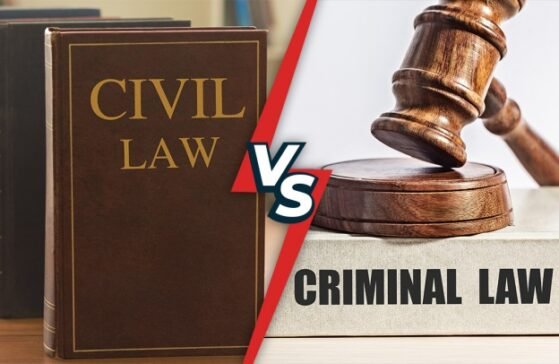Introduction to Divorce Decrees and Compliance
A divorce decree stands as the final, binding decision by a court, delineating the rights and responsibilities of each party after the dissolution of marriage. Issued after the conclusion of a divorce, this legal instrument meticulously details child custody arrangements, spousal support, property distribution, and more. Adherence to this decree is not only expected; it’s legally demanded. When parties comply with the divorce decree, it paves the way for a stable post-divorce life for everyone involved—especially if children are part of the family dynamic. Unfortunately, there are instances when one party may disregard the decree’s terms, leading to turbulence that can revive the wrath of the divorce process.
Understanding what makes a divorce decree invalid is fundamental to approaching violations effectively. An invalid decree, which can stem from various factors, including fraud or a lack of jurisdiction, opens the doors to legal challenges and additional court proceedings. Ensuring a decree’s validity and enforceability is a cornerstone of protecting one’s post-divorce rights and guaranteeing a non-disruptive transition.
Legal Ramifications of Divorce Decree Violations
Violating the terms of a divorce decree is not a simple oversight; it carries weighty legal consequences. The severity of these ramifications ranges from financial penalties to more drastic measures such as contempt of court charges, which can lead to imprisonment for repeat or flagrant violations. The justice system stands firm in handling such violations, emphasizing their seriousness and the need to observe legally binding agreements. It’s a clear message that both the spirit and the letter of the divorce decree must be upheld to preserve legal order and protect the affected parties, primarily when children’s wellbeing is involved.
Contempt of Court: What It Means in the Context of Divorce
The term’ contempt of court’ conveys a willful disregard for the court’s authority, where an individual knowingly fails to follow a court order. In divorce, this can manifest as a refusal to pay child support, flouting custody arrangements, or not adhering to asset division agreements. Such actions can significantly impact all involved, particularly emotionally, for the children who rely on these structures for their well-being. When allegations of contempt arise, the accused must present to the court and may face various penalties intended to enforce compliance and uphold the court’s rulings.
Civil vs. Criminal Contempt: Understanding the Differences

Contempt of court comes in two distinct flavors: civil and criminal. Civil contempt often coercively prompts non-compliant parties to fulfill their obligations under the divorce decree. Mechanisms like garnishing wages or placing liens on property are common ways to enforce this type of contempt until the ex-spouse complies with the order. Criminal contempt, on the other side of the spectrum, is punitive. It penalizes wanton disregard for the court’s order and acts as a warning to prevent future transgressions. The penalties for criminal contempt can include jail time and serve as a stark reminder of the importance of following court orders meticulously.
Steps to Take if Your Ex-Partner Violates the Divorce Decree
If you are in a stressful situation where your ex-partner has violated the divorce decree, swift and strategic action is paramount. Keeping a detailed record of the violations can fortify your case when seeking enforcement. Consulting a qualified attorney who can offer personalized legal strategies and file the necessary motions to the court is often an essential next step. The judicial system provides mechanisms to address non-compliance. While revisiting court may be daunting, protecting your rights and enforcing the terms carefully established upon your divorce resolution is sometimes necessary.
Modifying a Divorce Decree: When and How
Although a divorce decree is a final order, the law recognizes that life changes can render its terms impractical or unfair over time. Suppose substantial changes in circumstances—such as a significant shift in income, a change in the needs of the children, or relocation—occur. In that case, either party can petition the court to modify the decree appropriately. This process requires demonstrating that the changes are substantial and ongoing, meriting the legal adjustments to the decree. It also underscores the adaptable nature of family law, which seeks to be equitable and responsive to the evolving circumstances of individuals’ lives.
Best Practices for Enforcing a Divorce Decree
Proactive measures can significantly assist in the enforcement of a divorce decree. Keeping open lines of communication with your ex-spouse can help mitigate misunderstandings and promote voluntary compliance. For issues related to children, structured, documented systems like court-approved communication portals ensure clarity and a record of interactions. Maintaining meticulous records of payments and breaches is also critical; these documents serve as objective evidence in disputes or court proceedings. By being prepared and organized, you are in a stronger position to uphold your decree’s terms or argue for necessary modifications.
Alternative Dispute Resolution and Divorce Decree Violations
Despite the best efforts, there may be times when there are better routes than enforcing the decree through the court. In such scenarios, alternative dispute resolution (ADR) methods like mediation and arbitration present less adversarial and potentially more harmonious avenues to address non-compliance. With the guidance of a neutral third party, ADR can facilitate discussions and help forge agreements that respect both parties’ needs and the decree’s spirit. It’s an avenue that saves on potential legal costs and time and avoids the emotional strain that often accompanies protracted legal battles.
Learning from Experts: Tips and Advice for a Smooth Post-Divorce Transition
Divorce experts, ranging from attorneys to family therapists, offer valuable strategies to navigate post-divorce life, especially when dealing with the nuances of decree enforcement. They remind us that while legal compliance is non-negotiable, how we handle and communicate over these matters can impact our post-divorce life and well-being. Building a supportive environment, particularly for children affected by the divorce, is paramount.
Conclusion: The Importance of Legal Compliance and Support Networks
Concluding, it’s essential to recognize that the observance of divorce decree terms is crucial for promoting justice, stability, and predictability for all parties moving forward. Handling non-compliance takes fortitude and an understanding of your legal rights and resources. In addition, establishing a robust support network and tapping into the American Psychological Association’s recommended practices can significantly ease the enforcement process, providing the necessary legal and emotional assistance during such challenging times. Whether through direct enforcement or alternative means, enforcing a divorce decree ensures respect for the legal process and furthers the best interests of all involved, especially children who rely on the predictability of the structured post-divorce life laid out in the decree.
Read More:
Navigating Personal Injury Cases with Eisenberg Law Group PC in Ventura, California







